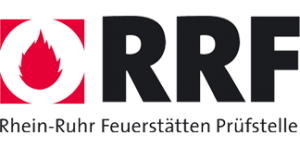Validation of the new European method for particle matter measurement (EN-PME)
The secretariat of the CEN/TC 295/WG 5 has issued new information on the new European method for particle matter (PM) measurement
Here you can find the content of the flyer:
„ Ecodesign and
particulate matter
As
of January 1, 2022, the European regulation on ecodesign requirements for solid
fuel local space heaters will enter into force in all member states of the EU.
From then on these appliances must comply with minimum requirements for
efficiency and for the emission of CO, NOx, hydrocarbons (OGC) and
particulate matter (PM).
The ecodesign regulation states three possible methods for the measurement of particulate matter. These methods are based on the current national methods as used in e.g. Germany, Austria, Norway, Denmark, UK, Belgium, Italy and France. The limit values for the PM emission as given for each method in the ecodesign regulation are not comparable with each other and to make matters more complicated, the description of the methods differs on critical details from the national methods.
So, there is the need for a uniform European measurement method: EN-PME!
What is the EN-PME method?
The EN-PME method is a method to measure the emission of particulate matter (dust) in the flue gases coming from residential appliances fired by solid fuel such as wood or pellets. It is based on sampling and measurement of particulate matter and hydrocarbons at the same temperature (180 °C).
In 2015, after 3 years of research, the method was presented by a consortium of 18 European research and test institutes.
The EN-PME method is adopted by the European standardization committee CEN/TC295 as the uniform European method provided that its validity is proven on all types of solid fuel local space heaters. Therefore, a validation project is launched by the working group WG 5 ‘Test methods’ of CEN/TC 295. Many notified test laboratories have since then acquired a sampling set specially designed for the EN-PME method.
The validation project
The EN-PME method will be tested by notified test laboratories on approximately 150 different appliances covering all types of solid fuel local space heaters. These tests will run simultaneously with the ‘normal’ particulate matter measurement as part of the initial type test of the appliance.
The goals of this project are varied:
1. To prove the validity of the method on all types of solid fuel local space heaters, i.e. is the method able to collect a representative sample of particulate matter under type test conditions.
2. To prove that the EN-PME method can replace the current three methods.
3. To create a database with EN-PME emission results from which a possible emission limit under ecodesign can be proposed.
Why is the EN-PME method
needed?
to
ensure that European manufacturers can sell their appliances in every country
in the EU, without having to do additional national measurements. Also, the
EN-PME method solves the current ambiguous description of the methods in the
ecodesign regulation, consequently creating a level playing field for everyone
involved.
How can I join the EN-PME validation project?
When you offer an appliance for an initial type test at a notified laboratory, ask them to do a test with the EN-PME method as well. Since this involves some extra work for the laboratory, they will ask you for a relatively modest financial contribution, the height of which is subject of an agreement between you and the laboratory.
The results of the tests will be made anonymous by your test laboratory and sent to CEN/TC 295/WG 5 for further evaluation. The duration of the validation project is approximately 18 months.”

